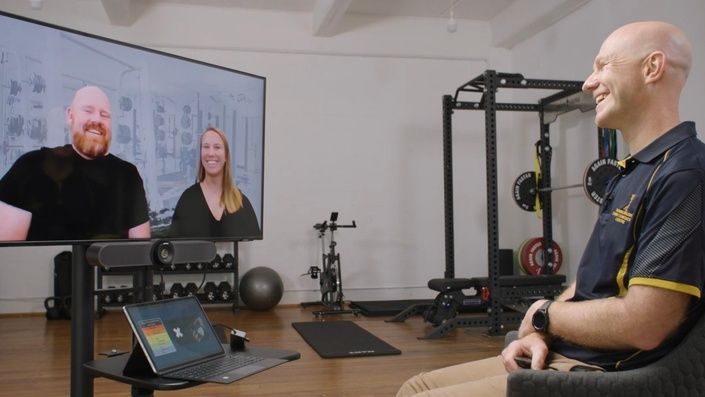Welcome back to the 3rd instalment of Mick's 2 cents blog!
If you missed my first two blogs you, you can read them here.
In the latest Podcast, Randall sat down and talked with Professor Shona Halson. Shona was the Head Recovery Physiologist at the Australian Institute of Sport from 2002 to 2018 and has been a part of three Olympic campaigns with the national team. Shona’s research focuses on recovery, fatigue and sleep and has been a trusted advisor to countless elite coaches and athletes.
The paper that was discussed between Randall and Shona was one of Shona’s recent publications “How much sleep does an elite athlete need?” that was published in the International Journal of Sports Physiology and Performance in May 2021. The full text paper can be found here
Like in all of Randall’s podcasts, there was plenty presented and discussed, but I want to focus this blog on a couple of key findings from this paper.
Firstly, the athletes reported that they needed approx 8.0-8.5 hours of sleep to feel rested, but when their sleep was actually measured, their average sleep duration was 6.5 hours. Quite astonishingly, only 3% of athletes got enough sleep that satisfied them, and 71% of athletes fell short by an hour or more.
This was a really interesting finding considering that the US National Sleep Foundation recommends 7 to 9 hours of sleep for young adults (18–25 y) and 7 to 8 hours for other adults (26–64 y).
With the average sleep duration of these athletes being less than the minimum recommended for young adults and adults by the National Sleep Foundation, and 1-1.5hrs less than what the athlete perceives to be an appropriate amount of sleep, and with the evidence consistently showing lower risk of injury & illness and increased performance with sleep that meets the recommended dosage (Luke et al 2011, Milewski et al 2014, Simpson et al 2016, Juliff et al 2017), its clear that we should be encouraging extra sleep time to our elite athletes.
However as Shona pointed out, it's not that easy to just say to the athlete “put your phone down and get more sleep”. We know that there are links to increased screen time and poor sleep quality and duration (not only due to blue light backgrounds, but also the content and interactions that athletes are engaging in), but as health professionals and coaching staff, we also play an important role in facilitating good sleep quality and duration.

Early morning training sessions that interrupt sleep quality and duration from the previous nights activity is a very easy way that we help athletes get appropriate amounts of sleep.
For example, instead of waking our players up at 630am-7am the morning after an evening match (which in itself is also associated with poor sleep quality and duration for numerous factors including increased alcohol consumption after the event and increased caffeine consumption prior to and during the event) to take them down to the ocean baths/pool for a recovery session; how about we just let them sleep in and let them get a decent 8hrs of sleep?
Hands up if you have been guilty of doing that? I know I have...
The other really interesting finding from Shona and her colleagues research was that sleep duration was shorter in athletes from individual sports than in athletes from team sports.
Think of the elite swimmer, rower, runner, cyclist. All of these athletes historically get up at the crack of dawn multiple times per week to get up and train, thus cutting into their sleep duration. There are certainly sporting cultural and behavioural reasons behind these early morning training sessions (eg. rowers – quiet still water; cyclists – quite roads with less traffic; swimmers – because we always get up early and that’s just how it is) that we may not be able to change too easily; but this is something we need to be conscious of when working with individual athletes and try to find ways to facilitate improve sleep quality and duration where we can.
So in wrapping up my blog – I hope you have enjoyed it by the way - here are my 2 cents regarding sleep:
- Sleep is one of the best performance enhancing “drugs” getting around. And its completely legal and free. So find ways to facilitate the bare minimum of at least 7hrs sleep per night in your elite athletes. Either encourage heading off to bed early if there has to be early morning training, or where possible, delay the morning training sessions to as late as possible in the morning.
- Don’t sacrifice sleep the morning after a game for an early morning “recovery session” at the pool. The restorative power that sleep gives the players is far better than the “active recovery” session you have designed for them in the pool that cuts their sleep short.
- Lastly, here are 4 simple tips from Simpson et al (2016) to improve night time sleep hygiene to encourage a good nights sleep:
1) Sleep in cool (but not cold), dark room.
2) Avoid using electronics or personal devices in bedroom.
3) Limit technology use 1 hour before bed.
4) Reduce caffeine after lunch, and minimise alcohol at night.
Journal Club with Randall Cooper
Mick's 2 Cents are based on the latest episodes of Journal Club with Randall Cooper.
These blogs delve into Mick's own perspective of each topic from the podcast.
If you'd like to listen to the full 15 minute podcast with Randall and Shona, click on one of the links below:


